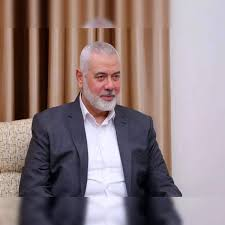
Table of Contents
Gaza Ceasefire
The commencement of ceasefire talks in Qatar marks a pivotal moment in the ongoing conflict between Israel and Gaza. As the violence has escalated over recent months, leading to significant casualties and humanitarian crises, the initiation of these discussions offers a glimmer of hope for a resolution. The involvement of high-profile figures, including Israel’s chief intelligence officer, underscores the gravity of the situation and the intense diplomatic efforts being undertaken to achieve a ceasefire. This article explores the context of the ceasefire talks, the roles of the key participants, and the potential implications for the region.
Background: The Conflict and Its Escalation
The Israel-Gaza conflict, a longstanding and deeply entrenched struggle, has seen a dramatic escalation in recent months. Frequent clashes between Israeli forces and militant groups in Gaza, such as Hamas and Islamic Jihad, have resulted in a high number of casualties and extensive damage to infrastructure in the region. The conflict has also led to widespread displacement and suffering among civilians, compounding the humanitarian crisis.
Efforts to broker peace and ceasefires have been frequent yet challenging. Previous ceasefire agreements have often been short-lived, with violations and renewed hostilities undermining the stability achieved. The complexity of the conflict, driven by political, territorial, and historical factors, makes achieving a durable resolution particularly difficult.
The Role of Qatar in the Ceasefire Talks
Qatar has emerged as a key mediator in the current round of ceasefire talks. The country’s role in the mediation process is rooted in its diplomatic relationships with various actors in the Middle East, including both Israel and Gaza. Qatar’s neutral stance and its position as a significant financial supporter of Gaza’s humanitarian needs have positioned it as a crucial player in facilitating dialogue.
The choice of Qatar as the venue for the talks reflects its established role in hosting negotiations and its ability to bring together conflicting parties. Doha’s involvement in previous negotiations has included hosting discussions between different factions and providing humanitarian aid, which has earned it credibility as a mediator.
The Significance of Israel’s Spy Chief’s Attendance
The attendance of Israel’s chief intelligence officer at the ceasefire talks is particularly noteworthy. This high-level participation signifies the seriousness with which Israel is approaching these negotiations. The intelligence chief’s role in the talks underscores the importance of understanding the security concerns and strategic considerations that underpin Israel’s position.
Israel’s intelligence services have been pivotal in shaping the country’s security policies and responses to threats from Gaza. The involvement of the intelligence chief indicates that Israel is prepared to engage in detailed discussions about security arrangements and mechanisms to ensure the implementation and monitoring of any potential ceasefire agreement.
Key Issues on the Agenda
Several critical issues are expected to be at the forefront of the ceasefire talks:
- Immediate Ceasefire Terms: One of the primary objectives of the talks is to establish the terms of an immediate ceasefire. This includes agreeing on the cessation of hostilities, the terms for disengagement, and mechanisms for monitoring and enforcement. Both parties will need to address how to manage and verify the cessation of attacks and ensure compliance.
- Humanitarian Concerns: The humanitarian situation in Gaza is dire, with significant shortages of essential supplies, medical care, and infrastructure damage. Discussions are likely to focus on ensuring the delivery of humanitarian aid, reconstruction efforts, and support for the civilian population affected by the conflict.
- Security Arrangements: Ensuring the security of both Israeli and Gazan civilians is a key concern. The talks will need to address how to prevent future escalations and ensure that militant groups do not resume hostilities. This may involve discussions on border controls, monitoring mechanisms, and security guarantees.
- Political and Territorial Issues: Long-term peace negotiations will also need to address the broader political and territorial issues that underlie the conflict. While the immediate focus is on a ceasefire, discussions may touch on the broader political framework, including the prospects for a two-state solution, borders, and the status of Jerusalem.
- International and Regional Support: The involvement of international and regional actors in supporting the ceasefire is crucial. The talks may include discussions on how to garner support from other nations and organizations to ensure the implementation and sustainability of any agreement reached.
Challenges and Obstacles
The ceasefire talks face several significant challenges:
- Mutual Distrust: Both Israel and Gaza harbor deep-seated mistrust towards each other, shaped by years of conflict and broken promises. Building confidence and ensuring that both parties adhere to the terms of the ceasefire will be a major challenge.
- Fragmented Leadership: In Gaza, multiple factions with differing agendas and levels of influence complicate negotiations. Ensuring that any agreement reached is accepted and implemented by all relevant groups is a complex task.
- Previous Failures: Past ceasefire agreements have often failed due to violations, lack of enforcement, or disagreements over terms. Overcoming skepticism and ensuring that this round of talks leads to a sustainable and effective ceasefire will be challenging.
- Regional Dynamics: The involvement of regional powers and neighboring countries, each with their own interests and agendas, adds another layer of complexity. Coordinating efforts and aligning regional support for the ceasefire is crucial.
.
Conclusion
The initiation of ceasefire talks in Qatar, with the participation of high-profile figures including Israel’s chief intelligence officer, marks a significant moment in the ongoing conflict between Israel and Gaza. While the path to a lasting resolution is fraught with challenges, the engagement of key stakeholders and the focus on addressing immediate and humanitarian concerns offer a glimmer of hope for peace. The outcome of these talks will not only impact the immediate security situation but also shape the prospects for a more enduring and comprehensive resolution to one of the most enduring conflicts in modern history.







